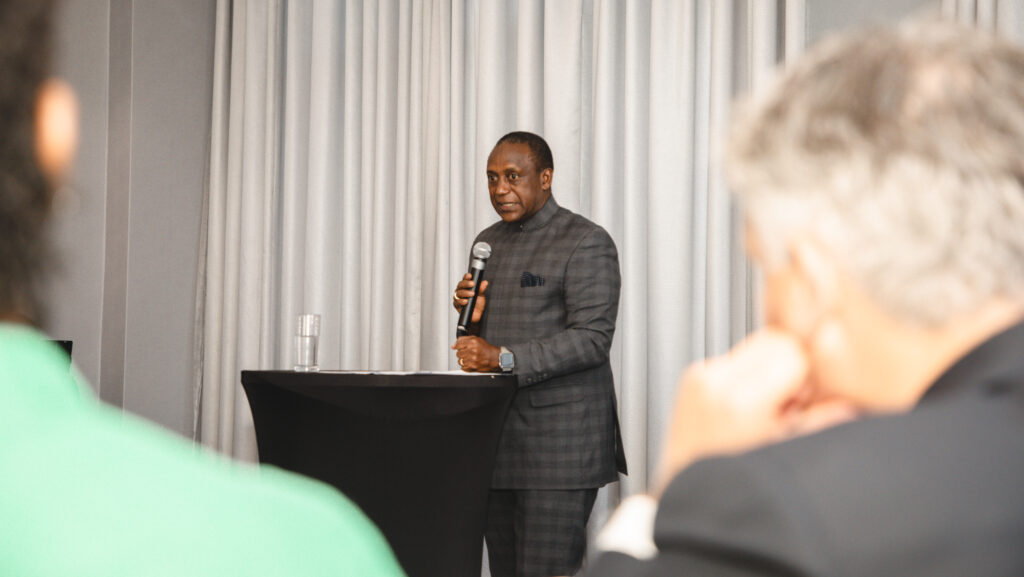Kenya Announces Inaugural Clean Cooking Delivery Unit in the Office of the President; Sierra Leone to Follow Suit
NAIROBI, Kenya, Sept. 6, 2023 — At the Africa Climate Summit, the Government of Kenya today announced the inaugural Clean Cooking Delivery Unit, a team of experts embedded within the Office of the President to accelerate clean cooking access. With an emphasis on unlocking private sector capital and carbon finance to deliver on Kenya’s ambitious climate and clean energy goals, the Delivery Unit will be housed at the highest level of government and will report to Special Climate Envoy Ali Mohamed.
“We are fully committed to achieving our ambitious target of universal access to clean cooking by 2028, a key pillar of our climate agenda,” remarked Ali Mohamed, Special Climate Envoy for Kenya. “In pursuit of this goal, we are working on a Memorandum of Understanding to introduce a Clean Cooking Delivery Unit based at the Executive Office of the President. This groundbreaking initiative is aimed at elevating the significance of this matter as a top development priority within the government. By fostering collaboration across Cabinet and adopting a systemic approach on planning and implementation, we aim to swiftly bridge the clean cooking access gap,” he stated. “We take great pride in pioneering this innovative governmental initiative, which ultimately aims at improving the quality of life for the people of Kenya.”

Nearly 80 percent of Kenyans still rely on heavily polluting fuels such as wood and charcoal for cooking, generating nearly 20 percent of Kenya’s greenhouse gas emissions and costing the economy KES 5.7 trillion (USD 39 billion) annually in negative climate and health impacts. Switching to clean cooking – using modern stoves and fuels such as biofuels, gas, and electricity – transforms lives by improving health, protecting the climate and the environment, empowering women, and helping consumers save time and money.
Dr. Kandeh Yumkella, Sierra Leone Chairman of the Special Initiative for Climate Change, Renewable Energy and Food Security to the President, also announced that his country is prepared to join Kenya with its own Delivery Unit.
“Achieving a radical economic and social transformation in Sierra Leone hinges upon massive improvement in access to energy including clean cooking solutions,” emphasized Dr. Kandeh Yumkella, Sierra Leone Chairman of the Special Initiative for Climate Change, Renewable Energy and Food Security to the President. “This is precisely why we are proud to launch along with the Government of Kenya, the first set of dedicated Delivery Units on clean cooking energy access — a pivotal catalyst that will enable us to drive widespread change,” he announced. “We are committed to integrating the Delivery Unit into our institutional framework to ensure its enduring presence within national policies. By turning our vision into reality and leveraging our partnership with the Clean Cooking Alliance, we will usher in a new era of smart, inclusive, and sustainable energy transition in Sierra Leone.”
Sierra Leone and Kenya have pledged to join Africa’s first Delivery Units Network on clean cooking, a new platform established and administered by the Clean Cooking Alliance to support each government’s Delivery Unit. Several additional Sub-Saharan presidential offices are in discussion to join the Delivery Units Network with an ambition to establish at least 10 Delivery Units across Africa, Asia, and Latin America.
The Delivery Units Network provides the funding, technical support, and connections to ensure the Delivery Units are successful, while supporting self-determination and equity for locally led planning and execution.
“The Clean Cooking Alliance is proud to support Kenya, Sierra Leone, and other governments in implementing the clean cooking solutions that work best for them in pursuit of their national climate and clean energy goals,” said Dymphna van der Lans, Chief Executive Officer of the Clean Cooking Alliance. “These Delivery Units elevate clean cooking to the highest level of government for the first time, demonstrating the commitment of Kenya and Sierra Leone and enabling the Delivery Units to overcome coordination, resourcing, and capacity challenges.”
The Delivery Units can help to mobilize and optimize investment into the market. Globally, at least $10 billion of funding per year is required to achieve universal access to clean cooking by 2030, yet governments and the private sector struggle to access international and domestic financing.
“Delivery Units are the backbone of wider progress,” said van der Lans. “Government leadership and action can unlock public and private sector funding; facilitate clean cooking transitions that are equitable and inclusive of the poorest and most vulnerable populations; and enable markets to function for the private sector.”
